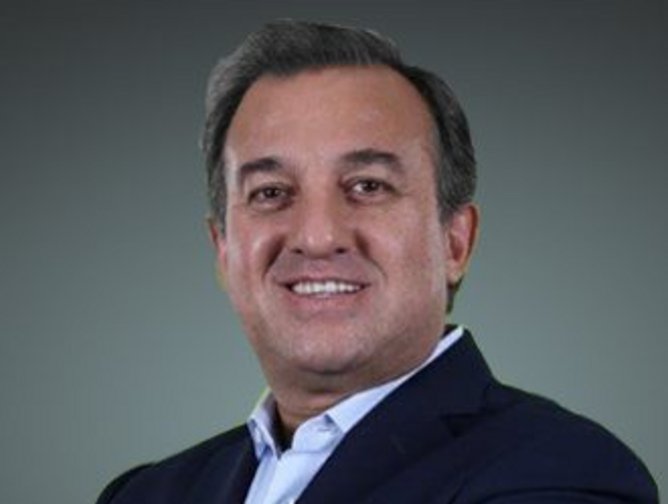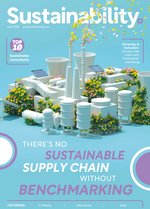UPL on role of agriculture in decarbonisation strategies

Jai Shroff, Global CEO of leading sustainable agricultural solutions provider, UPL was speaking after the second edition of the OpenAg Symposium held at the Blavatnik School of Government at the University of Oxford.
He said: "At UPL, we believe that agriculture has a decisive role to play on the path to decarbonisation during this crucial window for action in the fight against climate change. The discussions we've heard at this year's OpenAg Symposium demonstrate the growing appetite for the innovation and cross-sector collaboration required to transform the climate-positive contribution of food systems around the world."
The purpose of this hybrid event, which is hosted by UPL and the Oxford India Centre for Sustainable Development, Somerville College, University of Oxford, is to work towards carrying forward the conversation on the future of food and agriculture in a changing climate by exploring the role of agriculture in decarbonisation strategies on the path to Net Zero emissions.
Food Futures in a Changing Climate
Bringing together a select group of representatives from academia, policy, finance and the private sector under the theme 'Food Futures in a Changing Climate: Reimagining the role of agriculture as a pathway to Net Zero’, a series of policy positions, technological interventions, and financial models to transform food systems as positive contributors to global decarbonisation efforts were outlined.
Following a keynote by Agnes Kalibata, President of the Alliance for a Green Revolution in Africa, panellists from Brazil, India, the United States, Italy, the Netherlands, and Kenya, proposed a series of policies and interventions to ensure future food systems are efficient, resilient, inclusive and sustainable.
This included calls for more supporters to join investors representing $14.59 trillion who are calling on the UN to produce a Global Roadmap to 1.5˚C, the creation of a formal carbon framework for soil, and better and more transparent monitoring and measurement for all net zero initiatives within agriculture.
Panellists also outlined the need for more enhanced financial models to de-risk new investment in sustainable agriculture, the importance of fairly incentivising and rewarding farmers for adopting sustainable practices, and the need for justice and equality to form key pillars across all climate interventions.
Concluding the OpenAg Symposium, Baroness Royall, said: "As we head towards COP27, the partnerships between academic institutions, policy makers, and private sector must be the linchpins of finding answers to the most pressing sustainability issues being faced around the world. Solutions are most found when disciplines align, and the discussions we have led today must be catalysts for more interdisciplinary conversations and commitments that will deliver the greatest impact on agriculture and sustainability."

About Jay Shroff
Jai Shroff is the Global CEO of UPL Limited. He is a well-recognised global leader in the Chemical & Agri-Inputs industry with over 30 years experience in India and internationally.
UPL group is focused on strengthening food security in over 130 countries by offering technologies and solutions for sustainable agriculture production. Under Jai's leadership, UPL has been one of the fastest growing agri-input companies in the world with strong presence in the Seeds, Plant Nutrition, Crop protection and Post harvest food preservation value chains. He has driven the transformation of UPL from a largely domestic player to a truly global Indian multinational organisation.
UPL has a global workforce of more than 25 different nationalities. It operates 35 manufacturing plants in India, Asia, Europe, Latin and North America and serves the farming community across the globe.
Jai's vision for UPL is to endeavour to continually provide smart, affordable and profitable solutions to the global farming community with a strong focus on Innovation, Research and Excellence by "Doing Things Better'.
Jai believes in the power of collaboration and inter-sectoral partnerships. He is actively involved in the global development agenda, including the World Economic Forum's Grow Africa and Grow Asia initiatives, IFPRI's Sustainable Agriculture and Global Food Security Initiative, WBCSD, Chicago Council, IGD and ICAR.
About UPL
UPL is a global provider of sustainable agriculture products & solutions, with annual revenue exceeding $5 billion. As one of the top 5 agriculture solutions companies worldwide, its robust portfolio consists of biologicals and traditional crop protection solutions with more than 13,600 registrations. With a presence in more than 130 countries and more than 10,000 colleagues globally, UPL reaches more than 90% of the world’s food basket.
UPL is guided by its OpenAg purpose to build a global collaborative network within our industry and beyond to unlock opportunities and outcomes that no single actor could achieve on their own. OpenAg is the first, truly collaborative, global commitment to working with the entire food system – from farmers to producers to consumers - to change the way the industry thinks, works and evolves and delivers positive change. This purpose reflects UPL’s mission to Reimagine Sustainability by positioning agriculture as a vital component of global efforts against climate change, particularly realising agriculture’s potential in securing Net Zero goals through sequestering greenhouse gases in agricultural soils.
UPL is India’s largest producer of crop-protection products, and has initiated the ‘UPL sustainability fund’ at the OICSD which supports key research and programmes of the Centre.
About Oxford India Centre for Sustainable Development (OICSD)
The OICSD advances research on the challenges and opportunities of sustainable development in the Indian subcontinent, bringing disciplines together to address core themes, developing future leaders through scholarships and translating research into action. Through its conferences and seminars, OICSD has been working to coordinate Oxford’s diverse expertise on India and climate change, law and governance, food and water security, health, clean energy, technology and sustainable cities.







